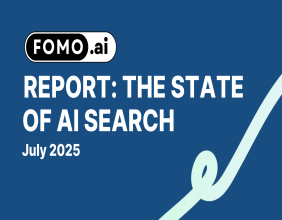South Korea experienced an unexpected political upheaval as President Yoon Suk Yeol declared martial law in the middle of the night, a dramatic move that was swiftly counteracted by the National Assembly.
The situation, which unfolded over just six hours, drew global attention and tested the resilience of South Korea’s democracy.
Despite the tension, the nation’s markets displayed relative stability, reflecting a cautious optimism amidst the uncertainty.
Martial law declared and revoked within hours
In an unprecedented turn of events, President Yoon announced martial law, deploying military forces to the National Assembly.
However, legislators voted unanimously to revoke the decree, leading Yoon to step back in a second broadcast hours later.
The move, reminiscent of historical power struggles, sparked protests across South Korea and calls for Yoon’s impeachment, with an early election now appearing likely.
While the situation created immediate volatility, the Bank of Korea’s decision to provide market liquidity without cutting interest rates offered a stabilizing effect.
The KOSPI index, South Korea’s main stock benchmark, fell by over 2% but remained above its yearly lows—a testament to the underlying strength of the economy despite political uncertainty.
Global markets show resilience amid South Korea’s crisis
South Korea, a linchpin of the global economy and a critical ally of the US, has long been a symbol of stability in a geopolitically sensitive region.
The declaration of martial law and its rapid reversal sent ripples across global markets, but the reaction was measured.
The FTSE Global Stock Index showed a slight dip during the announcement, but any losses were quickly recovered as the situation de-escalated.
The S&P 500 even reached an all-time high, signaling that while the crisis captured international attention, it was viewed as a localized event with limited long-term implications for global markets.
Analysts likened Yoon’s failed power grab to the 1991 Soviet coup against Mikhail Gorbachev, calling it a sign of political weakness rather than strength.
South Korea and the global postwar order
The turmoil in South Korea highlights broader challenges facing nations that have thrived under the postwar economic framework.
Alongside countries like France, Germany, and Japan, South Korea exemplifies the benefits of globalisation.
However, political fragmentation and rising populism suggest that these beneficiaries of the Pax Americana order are under increasing strain.
Across the globe, voters are expressing dissatisfaction with the status quo, leading to political stalemates and, in extreme cases, desperate moves like South Korea’s declaration of martial law.
Observers note that this political turbulence coincides with the US shifting its global stance, leaving these nations to navigate an uncertain future.
Economic implications and market outlook
South Korea’s economic fundamentals remain robust, even as political uncertainty looms.
The Bank of Korea’s decision not to cut interest rates is a positive indicator, suggesting confidence in the nation’s financial resilience.
Meanwhile, global markets continue to focus on other pressing issues, including the Federal Reserve’s expected rate cut later this month and oil price fluctuations driven by geopolitical tensions.
The Korean won saw limited movement, reflecting confidence in the country’s financial stability.
However, analysts warn that prolonged political instability could undermine investor confidence, especially if impeachment proceedings against Yoon proceed or an early election leads to further uncertainty.
Broader implications for democracy and stability
The swift rejection of martial law by South Korea’s National Assembly and the public demonstrates the resilience of its democratic institutions.
However, the episode serves as a stark reminder of the fragility of political stability in even the most developed democracies.
As nations worldwide grapple with political and economic pressures, South Korea’s experience underscores the importance of strong democratic frameworks and sound economic policies.
While the immediate crisis appears to have passed, the long-term implications for South Korea’s political landscape and its role in the global order remain uncertain.
The post South Korea’s political turbulence shakes markets but democracy endures appeared first on Invezz



